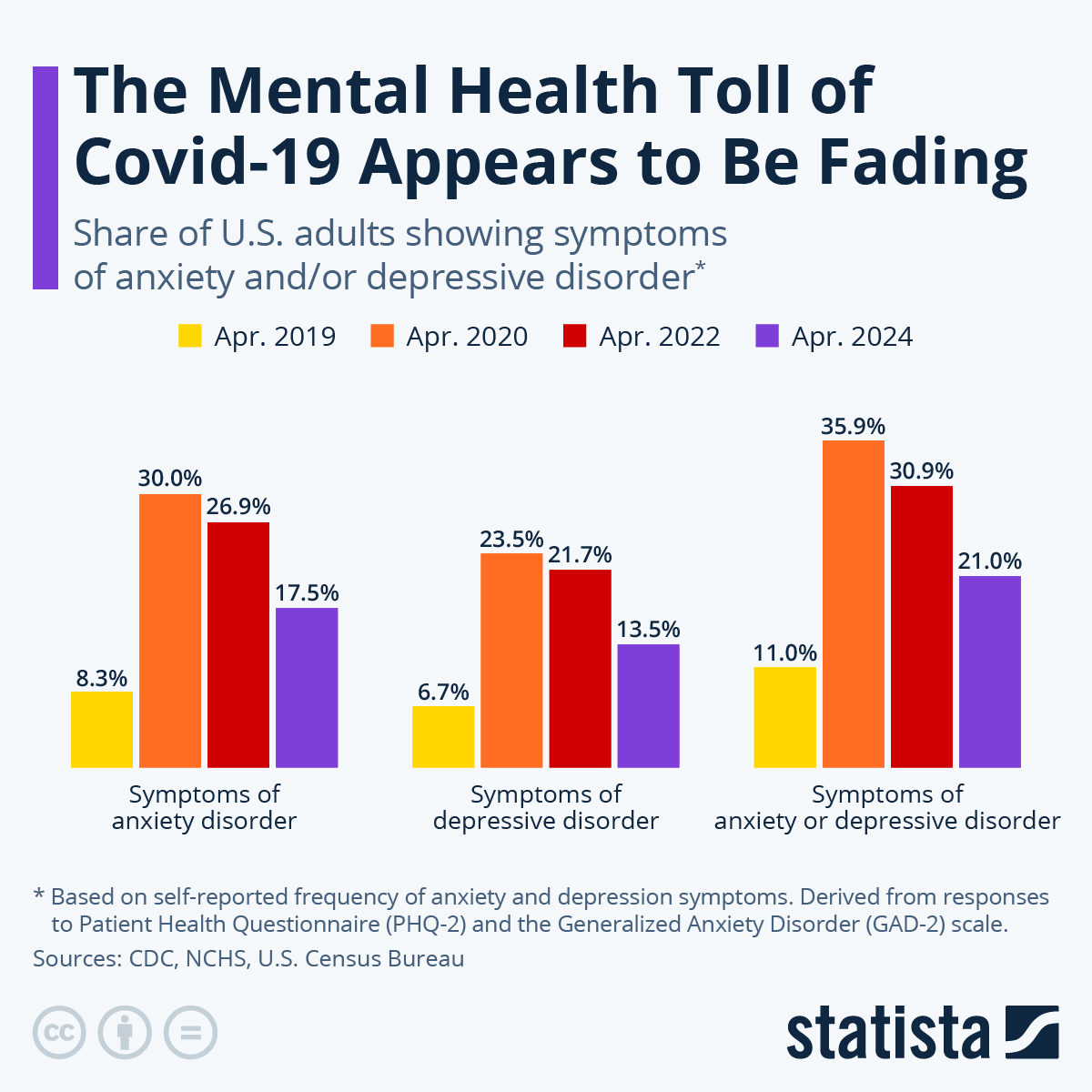Aside from killing 1.2 million Americans, putting millions in the hospital and wreaking havoc on the country’s economy, the Covid-19 pandemic also took a heavy toll on mental health. Data compiled by the U.S. Census Bureau and the National Center for Health Statistics clearly showed a spike in the prevalence of symptoms associated with anxiety and/or depressive disorder following the onset of the pandemic. These psychologial effects of Covid-19 even outlived the pandemic itself, as in March/April 2024, symptoms of anxiety or depression were still roughly twice as common as they were in April 2019. However, the latest results published by the National Center for Health Statistics indicate a positive trend, as the mental toll of the pandemic finally appears to be fading. In April 2024, 21 percent of respondents reported symptoms of anxiety or depression, down from 34 percent in October 2023 and from a peak of 43 percent in November 2020.
The latest findings are derived from the Household Pulse Survey, which has been launched to produce data on the social and economic impacts of Covid-19 on American households. Since April 2020, tens of thousands of Americans have been asked to complete the web survey in order to "gauge the impact of the pandemic on employment status, consumer spending, food security, housing, education disruptions, and dimensions of physical and mental wellness." Among other things, respondents were asked to report how often they have felt down, depressed, hopeless or anxious in the last week, how often they have been unable to stop worrying or shown little interest or pleasure in doing things – all symptoms that have been shown to be associated with diagnoses of generalized anxiety disorder or major depressive disorder.




















